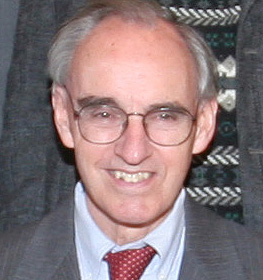Chris Welles, a longtime editor at BUSINESS WEEK and former teacher of mine, died the other day. Chris Roush, who edits the blog Talking Biz News, ran the piece below.
I suspect it is one of many tributes to come about Welles, a major figure in business journalism. I had occasion to write about Welles myself a few weeks ago. He and another former BW editor, Ron Krieger, introduced me to the foreign world of business journalism in 1980 at the Columbia J School. It’s not too great a stretch to say the pair changed my life.
Welles asked tough questions of business people, making for penetrating journalism. He had a hand in much of the best work BW published. Only time will tell, but I believe that BW peaked during Welles’ time there.
Some profound thoughts here by a former editor for us all at BW:
Ex-BusinessWeek editor Shepard fondly remembers Welles — 2010.06.21
Talking Biz News asked Steve Shepard, the editor of BusinessWeek from 1985 to 2005, for some thoughts about business journalist Chris Welles, who worked at BusinessWeek for 13 years and died this weekend.
Here is what Shepard, now the dean at the CUNY Graduate School of Journalism, had to say:
“Chris Welles was a genuinely good guy with a journalistic soul. He very much believed that it was the job of the press to hold people in power accountable for their actions and to ferret out wrongdoing. He spent his career doing that, first as a writer, then as a senior editor at Business Week. From the late 1960s to the early 1980s, Chris was probably the premier business writer around, the guy who did the tough stories.
“In his early years, Chris was one of the regulator writers for Institutional Investor, an innovative magazine about Wall Street in the 1970s. He specialized in narrative accounts of shennaigans, abuses, and downfalls. He was also a very successful freelancer, contributing to New York magazine, among others. From 1977 to 1985, he headed the Walter Bagehot Fellowship Program in Business and Economics Journalism at Columbia University. I had served as the first director (1975-76) and Soma Golden the second (1976-77). The program ran into financial difficulties during Chris’s tenure, but he fought to continue it and eventually weathered the storm. Now called the Knight-Bagehot Fellowship Program in Business and Economics Journalism, it has just finished its 35th year as a mid-career opportunity for business journalists.
“When I was editor-in-chief of Business Week, I jumped at the chance to hire Chris in the mid 1980s as a senior writer specializing in investigative and narrative pieces. Though he was soft-spoken and always polite, he was a tenacious reporter with a passion to get the bad guys. I eventually promoted him to senior editor in the finance department because I figured his impact would be felt more by having him work with writers every week rather than write a piece himself every couple of months. And I wanted him to teach the next generation of upcoming reporters. Chris took to editing like a fish to water, passing along a lot of knowledge about finance, a lot of wisdom about reporting complex stories. He was respected and liked by his colleagues.
“Like Lou Gehrig in 1939, Chris started losing some of his skills, and nobody knew why. He was eventually diagnosed with early onset Alzheimer’s disease and retired from Business Week. It was a tragedy for him and his wife Nancy, and a terrible loss for all of us. He took business journalism to a new level, setting the bar ever higher for the rest of us. He has left a legacy for all of us to honor.”

